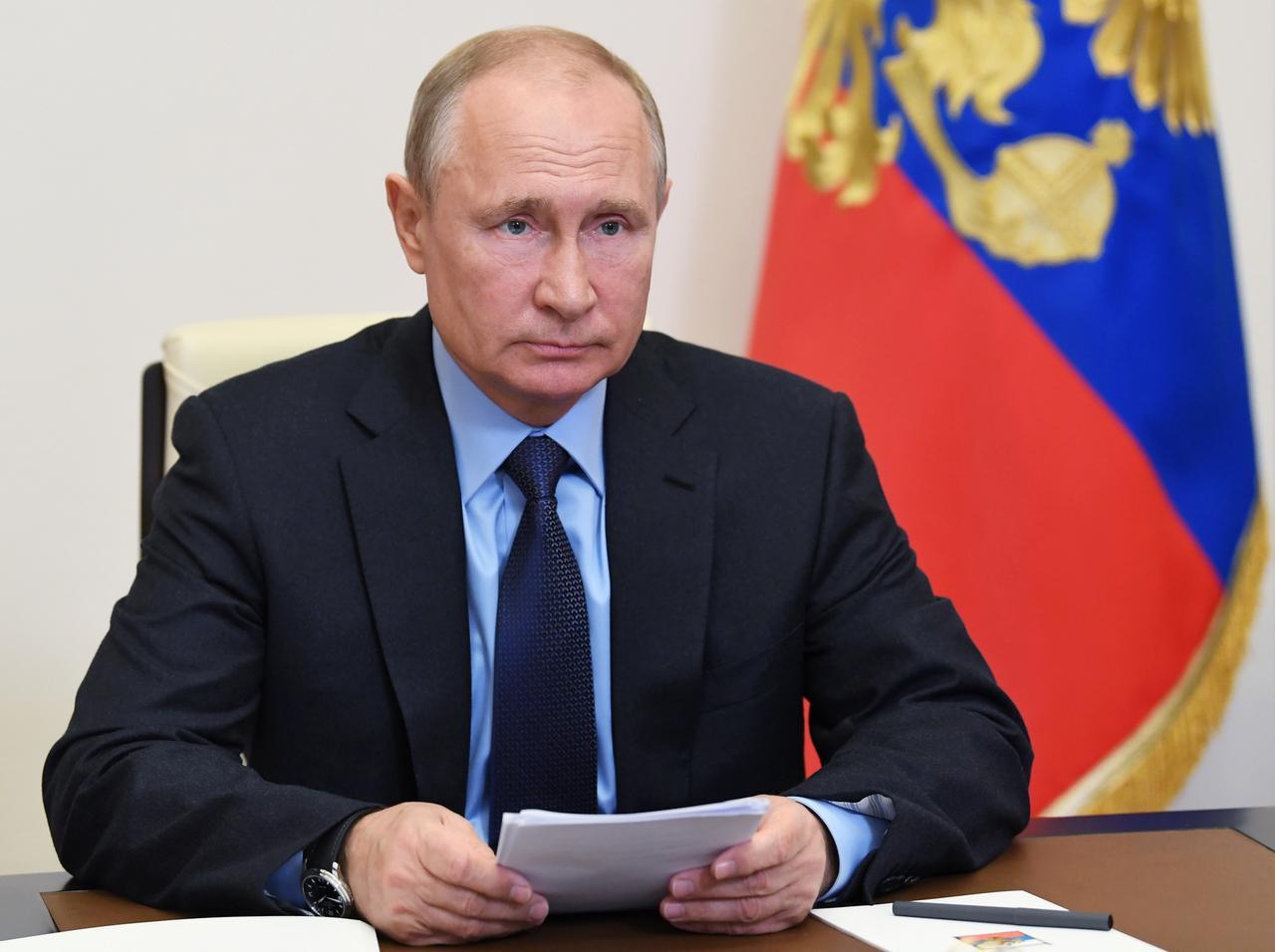Putin says fourth minister had coronavirus after cases pass 250,000

President Vladimir Putin said on Thursday Russia’s education minister had caught the new coronavirus, making him at least the sixth senior official to be swept up in the pandemic that has officially infected more than 250,000 people nationwide, according to Reuters.
But Anna Popova, a senior health official, said Russia had managed to stop the growth rate of infection after authorities reported a one-day rise in new coronavirus cases of fewer than 10,000 for the first time in almost two weeks.
Putin, speaking at a televised government meeting via video link, said it was “no secret” that Valery Falkov, 41, the minister of science and higher education, had tested positive and recovered, and asked him how he was feeling.
“Thank you Vladimir Vladimirovich, I’m better already and I’m actively back at work,” the minister replied.
Falkov is the fourth member of Putin’s government known to have caught the coronavirus, including Prime Minister Mikhail Mishustin who is still recovering, but has remotely attended at least one government meeting by video conference.
The Kremlin has said the health of Putin, 67, is carefully guarded and most of his recent public appearances have been at government meetings via video link from a room at his residence outside Moscow.
Moscow and much of the country are in their seventh week of a lockdown, but factory and construction workers have gone back to work after Putin said on Monday that a gradual easing of the restrictions was feasible.
On Thursday, Russia’s official coronavirus case tally passed the 250,000 mark after 9,974 new cases were recorded in the last 24 hours, the lowest one-day rise in almost two weeks.
“I would say that today we have halted growth,” Popova said in the preview of a video interview due to be aired on Sunday on the Rossiya-1 television channel.
At 252,245, the case total is the second highest in the world after the United States, although authorities say the high figure shows how thoroughly officials are testing people.
Ninety-three people died overnight, pushing the death toll to 2,305, a level that is well below many countries and has prompted the Kremlin’s critics to cast doubt on the accuracy of the figure. Officials deny any data manipulation.
Moscow’s mayor, Sergei Sobyanin, said on Thursday that authorities would begin free mass testing of residents from Friday and that they aimed to be testing 100,000 people a day by the end of the month.
 Latest news
Latest news Latest news
Latest newsGreece Plans to Exclude Turkiye from Future Defense Contracts
20.Feb.2026
U.S.-Based Mars Launches Major Investment Project in Kazakhstan
20.Feb.2026
Parliamentary Elections 2026 in Armenia as a Geopolitical Referendum
20.Feb.2026
Russia and Ukraine Fail to Reach Agreement in Geneva
19.Feb.2026
The South Caucasus in U.S. Foreign Policy: Implications of High-Level Visits for Russian and Chinese Regional Aspirations
18.Feb.2026
Ukraine Imposes Personal Sanctions on Belarusian President Alexander Lukashenko
18.Feb.2026
72% Against the Authorities: Economic Dissatisfaction Hits Record Levels in Turkiye
17.Feb.2026
Bulgaria Strengthens Defense: First American Stryker Vehicles Delivered
17.Feb.2026
Moscow Criticizes Plans to Build a U.S.-Backed Nuclear Power Plant in Armenia
16.Feb.2026
Washington expects Tbilisi to strengthen ties amid regional changes
15.Feb.2026

 28 Feb 2026
28 Feb 2026









